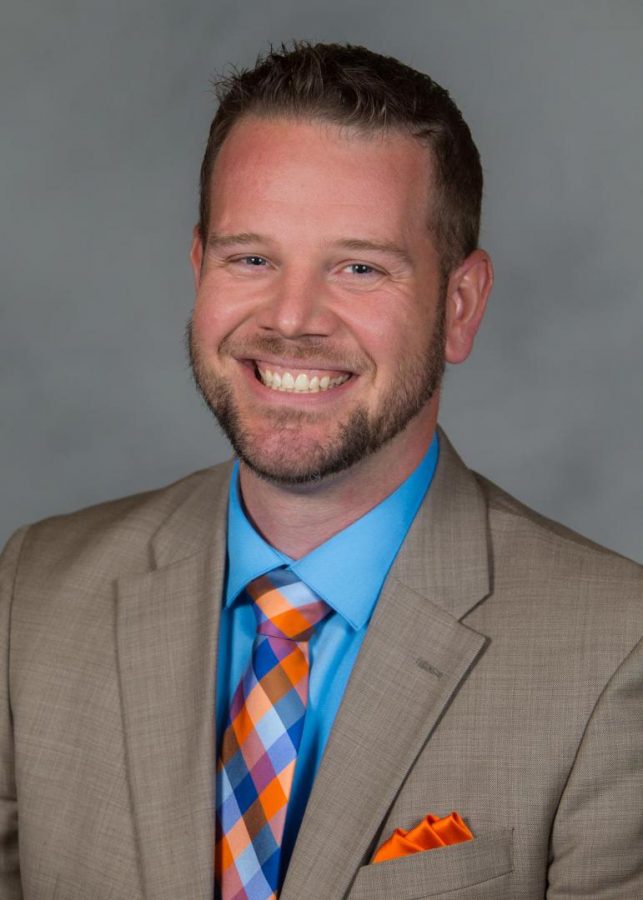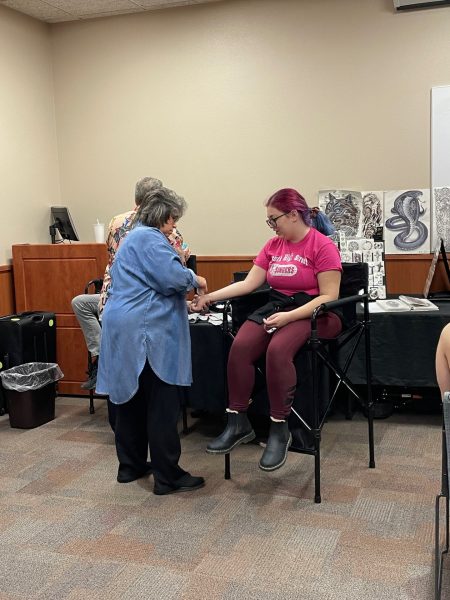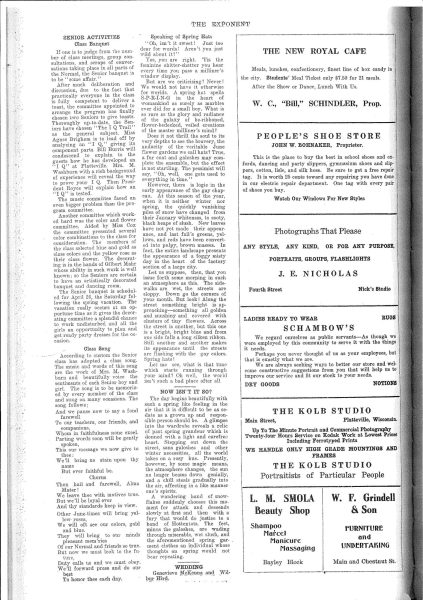“Brown v. Board of Education”
Interview Series: Josh Anderson
The Exponent is continuing our interview series to cover the 65th anniversary of Brown v. Board of Education of Topeka. This was a landmark 1954 Supreme Court case in which the justices unanimously ruled that the racial segregation of public schools was unconstitutional. It was one of the cornerstones of the Civil Rights Movement, legally abolishing the precedent of “separate but equal.”
Dr. Josh Anderson is an assistant professor of English and teaches writing composition and method courses for English education majors and minors. This is Anderson’s third year teaching at the University of Wisconsin-Platteville, and his research and teaching interests focus on secondary English education and rural education.
Anderson received his Bachelor of Science in secondary English education and physical education in 2005 from Northern Michigan University, and he taught as a high school English teacher at Iowa-Grant High School. In 2012, he received his Master’s Degree in English with an emphasis in Writing and Pedagogy from Northern Michigan University, and in 2016, he graduated from Western Michigan University with a Ph.D. in English with an English education emphasis.
What do you think was the most important message members of our community could take away from the Brown v. Board of Education event hosted by the School of Education?
The most important message members of our community could take away from the event is that equitable access to a high-quality education is still a concern for Americans from all walks of life. Brown v Board of Education ended the unconstitutional practice of segregation in our public schools, but it also made a promise to the children of this country that all students have an equal right to access quality education. The problem is we have not followed through on this promise, failing our students in the process.
In your experience as an educator, what do you think is the most important legacy of the Brown v. Board of Education ruling?
The most important legacy of the Brown v Board of Education ruling is its ability to unite. I know it sound cliché, but the tenants of Brown v Board of Education sought to bring together students and communities. If we are going to continue to succeed as a nation, as the UNITED States of America, we need to realize that our neighbor’s failure is also our failure. If a community or school district 10 miles or 1,000 miles from my home is facing a crisis, how can I not respond with anything other than support and additional resources. Far too often, the current response is to turn a blind eye and remove funding or close those schools. This doesn’t benefit anyone.
Nationally, do you think the United States is living up to that legacy?
While we have certainly come a long way in the past 65 years, it is clear that a lot of work remains to be done. I’ve spent the past 15 years entering school districts around the Midwest, and I can say with confidence the legacy of Brown v. Board of Education is not being met to its fullest. We still have communities in this country, both urban and rural, that are extremely segregated by race. We have the most segregated city in America, Milwaukee, in our own home state. Additionally, communities and school districts often find themselves separated by socioeconomics, as well. We send our children off to specific schools based upon the creation of often decades old district lines. Based upon where we live on that map, our children might attend a brand new $100 million school, or they might enter school buildings that are literally falling apart, with limited access to technology, textbooks and quality teachers. School of choice and charter school proponents use this as evidence for the need for such alternatives to our public-school system. I’m not here to debate the merits of these systems, but access to them is also always equitable. Take school of choice for instance. It can work great for suburban/urban communities were options of multiple school’s districts are available. But what about more geographically isolated communities, communities even more isolated than those here in southwest Wisconsin? How much of a choice does a parent have to send their son or daughter to a school 25, 50, 100 miles away? And don’t forget, it is the parents’ responsibility to get their child to that new school – they aren’t coming to bus them over district lines. In our urban/suburban schools this can also be both financially straining and time prohibitive for parents. The same can be said for charter schools, as well. They are more prevalent in suburban/urban areas but are rarely an option for parents in more rural settings.
Locally, what can people in Platteville and southwest Wisconsin do to live up to the legacy of this historic ruling?
I believe people in southwest Wisconsin can live up to the legacy of Brown v Board of Education by continuing to advocate not only for their own children but their neighbors’ children as well. We need to educate ourselves on the policies that impact the education of our students. Make no mistake about it, education is political. Both state and federal lawmakers pass policies that impact our nation’s teachers every day. Public school teachers are state employees. We must work together to promote more inclusive environments within our schools and to find a way to provide resources to those who need them the most.
In your experience as an educator, what do you think is the most important legacy of the Brown v. Board of Education ruling?
The most important legacy of the Brown v Board of Education ruling is its ability to unite. I know it sound cliché, but the tenants of Brown v Board of Education sought to bring together students and communities. If we are going to continue to succeed as a nation, as the UNITED States of America, we need to realize that our neighbor’s failure is also our failure. If a community or school district 10 miles or 1,000 miles from my home is facing a crisis, how can I not respond with anything other than support and additional resources. Far too often, the current response is to turn a blind eye and remove funding or close those schools. This doesn’t benefit anyone.
Nationally, do you think the United States is living up to that legacy?
While we have certainly come a long way in the past 65 years, it is clear that a lot of work remains to be done. I’ve spent the past 15 years entering school districts around the Midwest, and I can say with confidence the legacy of Brown v. Board of Education is not being met to its fullest. We still have communities in this country, both urban and rural, that are extremely segregated by race. We have the most segregated city in America, Milwaukee, in our own home state. Additionally, communities and school districts often find themselves separated by socioeconomics, as well. We send our children off to specific schools based upon the creation of often decades old district lines. Based upon where we live on that map, our children might attend a brand new $100 million school, or they might enter school buildings that are literally falling apart, with limited access to technology, textbooks and quality teachers. School of choice and charter school proponents use this as evidence for the need for such alternatives to our public-school system. I’m not here to debate the merits of these systems, but access to them is also always equitable. Take school of choice for instance. It can work great for suburban/urban communities were options of multiple school’s districts are available. But what about more geographically isolated communities, communities even more isolated than those here in southwest Wisconsin? How much of a choice does a parent have to send their son or daughter to a school 25, 50, 100 miles away? And don’t forget, it is the parents’ responsibility to get their child to that new school – they aren’t coming to bus them over district lines. In our urban/suburban schools this can also be both financially straining and time prohibitive for parents. The same can be said for charter schools, as well. They are more prevalent in suburban/urban areas but are rarely an option for parents in more rural settings.
Locally, what can people in Platteville and southwest Wisconsin do to live up to the legacy of this historic ruling?
I believe people in southwest Wisconsin can live up to the legacy of Brown v Board of Education by continuing to advocate not only for their own children but their neighbors’ children as well. We need to educate ourselves on the policies that impact the education of our students. Make no mistake about it, education is political. Both state and federal lawmakers pass policies that impact our nation’s teachers every day. Public school teachers are state employees. We must work together to promote more inclusive environments within our schools and to find a way to provide resources to those who need them the most.














